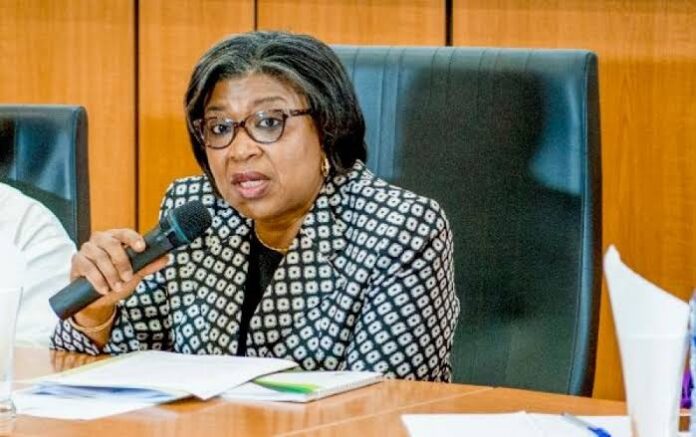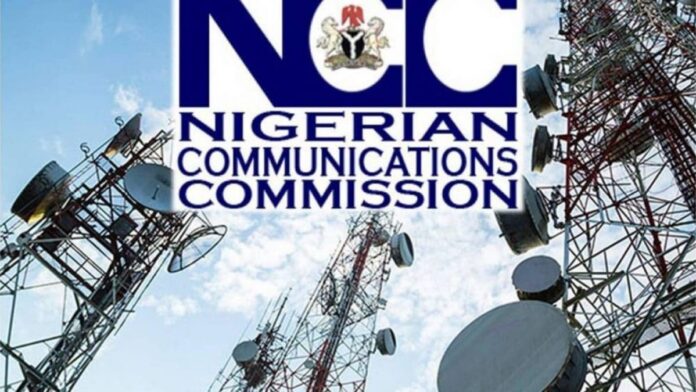…Revenue surpasses N157bn target by 4.4%
…FIRS retains N8bn 4% collection costs
By Charles Ebi
Controversial Stamp Duty now known as the Electronic Money Transfer Levy ,EMTL, has generated the sum of N192.33bn for the three tiers of government from volumes of electronic transactions in a 12-month period.
The levy was introduced in the Finance Act 2020 which amended the Stamp Duty Act to tap into the growth of electronic funds transfer in the country.
EMTL is a one-off charge of N50 on electronic receipt or transfer of money deposited in any Deposit Money Bank ,DMB, or financial institution on any type of account on sums of N10,000 and above.
The funds deducted by commercial banks are remitted to the Federal Inland Revenue Service ,FIRS, and subsequently shared among the Federal Government, State Governments, and Local Government Councils.
According to the analysis of the data, charges on electronic transactions dated November 2023 to October 2024 deducted by commercial banks and remitted to the FIRS stood at N192.33bn.
Of the amount generated, the Federal Government received N28.83bn, representing 14.99% of the total money realised in the period under review.
The state governments had the lion’s share, receiving N96.18bn, or 50.01%, of the N192.33bn generated in 12 months.
The LGCs were not left out, as 35% of the total amount, to the tune of N67.32bn, was released to this arm of government.
Analysis of the data collated from the National Bureau of Statistics ,NBS, and the Office of the Accountant General of the Federation ,OAGF, in August 2024 recorded the highest amount levied and shared, to the tune of N18.82bn, while the least remittance was recorded in December 2023 at N11.95bn.
Further breakdown of the data showed that N15.55bn was shared in November 2023, while N17.85bn was allocated to the three tiers of government in January 2024.
Between January 2024 and February 2024, the amount generated dropped by 10.8% to N15.92bn.
It dropped further to N15.16bn in March 2024, marking a 4.8% decline.
The decline remained consistent in April 2024, when the three arms of government had to adjust and share the sum of N14.75bn in revenue from the electronic transfer levy. In the period under review, the percentage decline stood at 2.7%.
The month of May 2024 was bountiful, as the sum of N18.03bn was disbursed to the Federal Government, state governments, and LGCs. On a month-on-month basis, the revenue rose by 22.24 percentage points.
Citing the statistics hub, the revenue shared in June 2024 dropped to N15.15bn, indicating a 15.97% decline from the amount disbursed in May 2024.
In July 2024, DMBs remitted N15.69bn to the FIRS, which was disbursed to the Federal Government, state governments, and LGCs. During the period under review, revenue from EMTL surged slightly by 3.56 percentage points on a month-on-month basis.
With August seizing the spot as the month with the highest revenue disbursed from EMTL, at N18.82bn, the data showed a decline of 21.09% when N15.02bn was distributed in September 2024.
The sum of N18.45bn was shared in October 2024. By comparison, the EMTL remittance rose by 22.84% against the September 2024 record.
Since the 2020 pandemic, e-payment transactions have soared, as businesses and institutions now adopt digital payment platforms, with the Nigeria Inter-Bank Settlement System ,NIBSS, noting the higher volume of electronic transactions.
The EMTL seeks to generate a total of N483.73bn from electronic payments in three years, spanning 2023 to 2025.
According to the Ministry of Finance, Budget, and National Planning, through the budget office, the three tiers of government intend to make at least N137.03bn in 2023, N157.59bn in 2024, and N189.11bn from EMTL.
Findings reveal that in the first 10 months of 2024, ending in October, the government had surpassed its N157.59bn target by 4.6%, as the revenue peaked at N164.83bn.
However, the revenue emanating from the EMTL would have surpassed the N192.33bn shared by the three arms of government as it couldn’t have included the cost of collection.
The FIRS keeps 4% of the revenues it generated to take care of cost of collection. Thus, adjusted by 4% cost of collection, the levy would have raked in a total of N200.02bn in 12 months, with the FIRS retaining about N8bn for cost of collection.
The controversies leading to the transformation of the Stamp Duty to EMTL dated back to 2016.
A former Acting Postmaster General of the Federation, Mr Enoch Ogun, lost his plum job on March 29, 2016. The reason was the controversial stamp duty.
The day before Ogun’s sacking, the Nigerian Postal Service ,NIPOST, was on a collision course with the then Minister of Communications, Adebayo Shittu, over the appointment of agents for the collection of stamp duty.
NIPOST had interviewed 30 companies that wanted to serve as stamp duty agents. The Minister said the postal organisation had not secured approval to hire the agents and he felt that the interview was an affront.
Just before Ogun’s removal, an Aide to the Minister had said, “The Minister of Communications, Adebayo Shittu, has received information that a committee purportedly raised by the acting Post-Master General has commenced the process of appointing agents to collect stamp duty on behalf of the Nigeria Postal Service and, by implication, on behalf of the Federal Government.
“The Minister hereby serves this warning that NIPOST has not been authorised to appoint new agents, in respect of the collection of stamp duty”.
He added, “The Federal Government has projected an accrual in excess of N2.5tn from the payment of stamp duties from the financial services industry as outlined by the Central Bank of Nigeria, CBN.
“This is indeed a significant contribution to national revenue pegged at N3.8tn in the 2016 budget. It needs no emphasis to state that the government places a big premium on earnings from the enforcement and diligent collection of stamp duty”.
Bisi Adegbuyi also lost his job as the helmsman of NIPOST. That was just a few days after he faulted the then Minister of Finance, Budget and National Planning, Mrs Zainab Ahmed, on the balance in the Stamp Duty Account domiciled in CBN.
A few days earlier, the labour union in NIPOST had protested at the National Assembly, and picketed the Abuja headquarters of the Ministry of Finance over the move to cede the duty collection to FIRS.
The workers held that Ahmed wanted to kill NIPOST, accusing her of masterminding the proposed plan to cede the collection of stamp duty to the FIRS.
The FIRS contended that it had the sole responsibility for the collection of all taxes and duties in the country.
NIPOST, on the other hand, was the repository of stamp, the historical product from which the stamp duty was introduced into the country for the first time on April 1, 1939 by the British Colonial Government through the Ordinance 15 of 1939.
As early as 2016, Ogun had confirmed an attempt by the FIRS to wrestle stamp duty from the postal organisation, but added that government officials led by the Revenue Mobilisation, Allocation and Fiscal Commission were working to resolve the controversy.
He said, “It is clear that FIRS collects taxes and duties. There is no doubt about that.It is also not in doubt that we ,NIPOST, are the custodians of stamp. So we are sister government agencies. Instead of looking at the revenue as belonging to agencies, you should look at it as government revenue”.
Although the stamp duty was introduced into the country by the colonial government since 1939, the culture of affixing stamp on legal documents kept dying with time.
The Stamp Duty Act of 2004 was a major attempt at reviving it. The legislative document, however, could not do the magic.
NIPOST, therefore, continued to seek ways to revive the duty, especially as it faced the challenge of dwindling revenues due to the advent of new communication technologies.
It hired consultants, employed agents and held workshops all in a bid to revive the pervasive use of stamps through the campaign that the documents of transactions were not yet legal until they had postage stamps affixed to them as required by the Stamp Duty Act.
The consultants told the postal organisation that it could make as much as N2.5tn per annum if the Stamp Duty Act was properly implemented.
In a document developed from one of its consultants’ investigation, the postal organisation said stamp duty could turn its fortunes around.
It said, “It has become another major source of revenue for the federal government.
This position is reinforced by the outcome of an investigation carried out in conjunction with a consultant to NIPOST, which put a conservative estimate of N2.5tn as loss to the country as a result of the failure of financial institutions to adhere to the implementation of the Stamp Duty Act in the year 2014 and that was in the financial institutions alone.
“The implication of this is that the implementation of the Act has opened a new revenue drive, which is a relief to the federal government.
“It is gratifying and exciting to know that well over 20 private companies now partner with NIPOST as stamp duty agents and more applications are still inbound”.
The elixir for NIPOST seemed to have come when the Central Bank of Nigeria bought into the revenue potential of stamp duty.
It directed all Deposit Money Banks ,DMBs, in the country to deduct N50 stamp duty for electronic transfers with a value of at least N1,000 and transfer the same to a NIPOST Stamp Duty Account domiciled in the apex bank. However, the elixir was short-lived.
Ruling on a case filed by a bank, Justice Ibrahim Saulawa and four other justices of the Court of Appeal, Lagos Judicial Division, held that the Stamp Duty Act 2004 did not impose a duty on DMBs to deduct N50 on bank deposits.
Instead of obeying the ruling of the court, NIPOST and the Federal Government prepared a new stamp duty bill to fill the vacuum pointed out by the Court of Appeal.
The new bill proposed a number of changes, including capturing electronic transfers, raising the threshold of deposits on which stamp duty is to be paid as well as the exemption of children education accounts.
While the bill lasted in the National Assembly, the Ministry of Finance consolidated a number of executive bills that would affect the revenues of the government; thus, the finance bill.
It was in the process of law making that the FIRS wrestled the responsibility of collecting stamp duty on electronic money transfer from NIPOST and to erase any trace to stamping, the duty was now baptised Electronic Money Transfer Levy ,EMTL.











